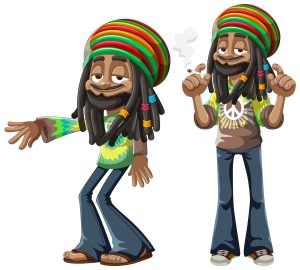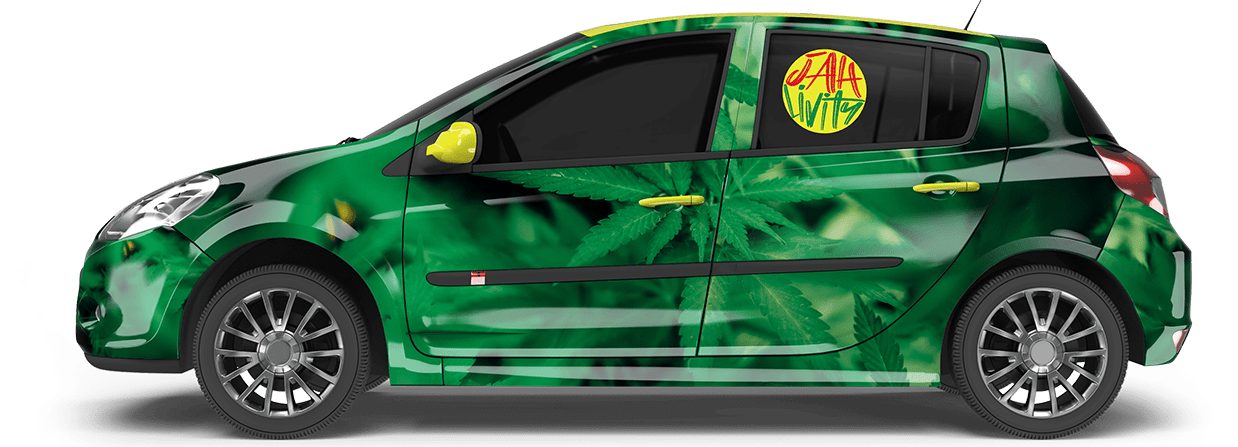When you think of Rastafarian culture, one of the first things that probably pops into your mind is the iconic dreadlocks. These aren’t just a cool hairstyle for the beach—they hold deep spiritual and cultural meaning for Rastafarians. So, why do Rastas grow dreads? What’s the symbolism behind the locks? And how did a hairstyle end up symbolizing rebellion, spirituality, and African pride? Grab a cup of ital tea, kick back, and let’s dive into the sacred and symbolic world of dreadlocks—with a touch of Jamaican humor, of course!

Dreadlocks: More Than Just a Fashion Statement
First things first: dreadlocks are not a hairstyle. Repeat after me: dreadlocks are not just a hairstyle! While some people may grow dreads for the aesthetic (you know, the “I just got back from a yoga retreat in the mountains” vibe), for Rastafarians, dreads are much deeper than that.
Rastas grow dreadlocks as an expression of their spiritual beliefs and as a way to live in harmony with nature. According to the Bible, specifically in the book of Numbers, the Nazarites (holy people) vowed not to cut their hair as a symbol of their devotion to God. Rastafarians adopted this practice, seeing dreadlocks as a sign of their commitment to Jah (God). So, when you see a Rasta with long, flowing dreads, don’t just think, “Wow, cool hair,”—think, “There goes a spiritual warrior on a mission.”
And let’s be honest, maintaining dreadlocks requires patience, commitment, and a whole lot of coconut oil. So if you ever thought growing dreads was just about skipping haircuts and combs, think again!
The Lion Connection: Mane of Majesty
Now, you might be wondering, “Why dreadlocks though? Why not just a simple Afro?” Well, dreadlocks symbolize the Lion of Judah, which represents Haile Selassie I, the Ethiopian emperor who is revered by Rastafarians as the messiah. Lions, as we all know, are majestic, powerful, and not to be trifled with—kind of like a Rasta who hasn’t had breakfast yet. The lion’s mane is a symbol of strength, pride, and resilience, and dreadlocks are meant to mirror that.
Basically, when you see a Rasta with dreads, you’re looking at someone who’s channeling their inner lion. And trust me, you don’t want to mess with a lion. Especially a hungry one. Just saying.
Dreadlocks as a Rejection of Babylon
Now, if you ask any Rastafarian about dreadlocks, they’ll likely tell you it’s more than just spiritual—it’s also a political statement. Dreadlocks are a way to reject Babylon, the Rastafarian term for Western society and its oppressive systems. In other words, if Babylon says, “You need to cut your hair and wear a suit to be successful,” the Rasta says, “Nah, mi good wid mi locks!”
By growing dreadlocks, Rastafarians are saying they won’t conform to the standards of Babylon. They’re embracing their natural selves and rejecting the idea that they need to fit into a mold to be respected. Dreadlocks are about embracing African identity, rejecting colonial ideals of beauty, and saying, “This is who I am, take it or leave it.” And believe me, plenty of people have tried to leave it—only to realize they can’t resist the irie vibes of a Rasta’s confidence.
Natural Vibes Only: Dreadlocks and Ital Living
It’s no secret that Rastas are all about living naturally. From their diet (ital food) to their lifestyle, it’s all about getting back to basics. So it should come as no surprise that dreadlocks fit right into that philosophy. Rastas don’t use chemicals or heat to style their hair—they let it grow and lock naturally, without interference from Babylon’s beauty standards.
If Babylon says, “Buy this fancy shampoo and conditioner for perfect hair,” the Rasta says, “Mi good wid mi coconut oil and nature.” Dreadlocks are the ultimate symbol of living in harmony with nature. After all, the way your hair naturally grows is the way Jah intended it, right?
Plus, let’s be honest—dreadlocks are practical. If you’re busy reasoning about the meaning of life and contemplating Jah’s divine plan, who has time to sit in front of a mirror and style hair for an hour? Dreads let you focus on what really matters: love, unity, and maybe a little reggae music on the side.
Dreadlocks and Spiritual Power
Rastas believe that dreadlocks carry spiritual energy, serving as an antenna to connect them to Jah and the universe. Each lock is like a spiritual Wi-Fi signal, picking up divine energy and keeping the wearer tuned in to higher consciousness. So, in case you ever wondered why Rastas seem so calm, cool, and collected—it’s the spiritual reception through their locks. They’re literally connected to Jah!
The longer the dreads, the more spiritual wisdom a person is believed to have. So if you come across an elder Rasta with dreadlocks that reach the ground, know that you’re in the presence of some serious spiritual power. And if they offer you advice, you might want to listen. Jah doesn’t mess around when it comes to wisdom.
Dreadlocks in Modern Times: Still Irie, Still Powerful
These days, you might see people rocking dreadlocks from all walks of life—musicians, artists, and even the occasional hipster trying to find their “authentic self” at a festival. But for Rastafarians, dreadlocks remain as sacred as ever. They’re a reminder of their spiritual connection, a symbol of African pride, and a way to stand up against the systems of oppression.
In a world that’s constantly telling people how to look, act, and live, dreadlocks are a way of saying, “I’m going to live how Jah intended me to, naturally and freely.” Whether they’re worn long and flowing or wrapped up in a crown, dreadlocks are more than just hair—they’re a way of life.
Wrapping It Up (Or Twisting It In, Mon)
So, the next time you see a Rasta with dreadlocks, know that it’s not just about looking cool (though, let’s be honest, it does look pretty cool). It’s about spirituality, rebellion, and living in harmony with the natural world. Dreadlocks are a reflection of strength, wisdom, and a commitment to Jah.
Whether you’re thinking of growing locks yourself or just admiring from afar, remember—those dreads are a lot more than a hairstyle. They’re a symbol of freedom, spirituality, and resistance to Babylon. And if you’re ever lucky enough to reason with a Rasta, don’t be surprised if they drop some serious wisdom, one lock at a time.
Stay Irie, and let your inner lion roar!
